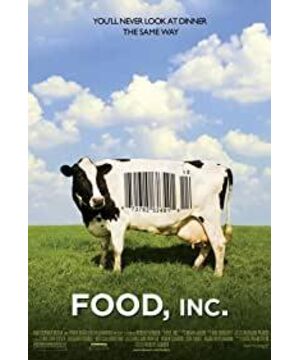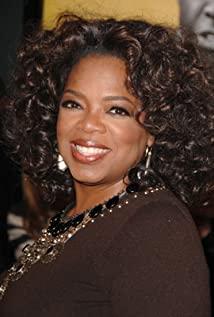?1.(12:24s) I understand the reason why chicken farmers are reluctant to say more because food companies can do whatever they want. The dream of a chicken farmer is good as long as it can make money. Anyway, it is the food company who has the final say. But the problem now is that this approach is wrong. I've made up my mind to say everything I have to say. I understand why other people don't want to do this. But I can't stand it anymore, so it's nothing. What needs to be said is still to be said.
(The camera pans to the chicken coop) The environment here has become very dirty, and there is dust everywhere. There are fences everywhere. It's not farming at all, it's just mass production, like a production line in a factory. The chicks here go from hatching to five and a half pounds in just seven weeks. Their bones and guts can't keep up with this growth rate. Chickens here can walk a few steps and then fall because their bodies can't support their own weight.
?2.(22:44s) The cow originally did not eat corn, but grass. We feed cows with corn just because corn is so cheap and it makes cows grow fast.
Where are you reaching?
This is the first of the four stomachs of a rumen cow and is not very easy to see.
You can see these liquids.
Will this harm the cattle?
Won't.
There are microorganisms and bacteria in the rumen in large numbers.
A cow's stomach is constructed to digest grass. Some studies have shown that corn-based feeds can cause acid-resistant E. coli that are acid-resistant
?3.(35:20s)
It has been seven years since my son passed away.
All I want the food company to do is say we are sorry, we produced contaminated food that caused your son's death, and we will build safer production processes in the future to prevent this from happening again.
That's what we asked for, but they couldn't even meet such a simple request
?4.(47:57s) How different the world is outside, the air is fresh, the sun is shining, the birds are singing and the flowers are fragrant isn't it? But by the standards of the Ministry of Agriculture, it is unsanitary, because it is an open environment and the Ministry of Agriculture once asked us to close our business. They called us out of business on the grounds of unsanitary conditions.
Can you imagine?
Then we sent a few samples to the first microbiology lab (local microbiology lab), then our sample averaged colony formation index was 133 (ours averaged 133C.FU), the store bought meat sample index was 3600 . Of course, no matter how many times the meat in the store has been washed with detergent, ours has never been exposed to chlorine.
? 5. (49:27) I am often amazed that we can always do the wrong thing to the extreme. I mean, Lie, we learned corn planting, fertilization, and harvesting techniques from raising cattle and using GPS, but no one thought about it, should we feed corn to cattle?
Our lives have been technologicalized. We only focus on how to do one thing. No one will ask themselves, why do this?
I think that if a civilized society, a pig will only be regarded as a pile of lifeless meat, a pile of meat that can allow human beings to put various so-called innovative ideas on it without any scruples. That society will take the same disrespectful and controlling attitude towards its own people and other co-existing civilizations.
?6.(51:02) This factory is located in a small town called Tasir. This area is a place with a very backward economy. Smithfield has figured out how to pick out labor that can be squeezed. It was originally poor white and black locals. They quickly drained the local labor force. Now they have to bus workers from Dansville, South Carolina, to Clinton, North Carolina. From here draw a circle with a radius of 50 miles from which the factory workers are hired.
Food companies treat workers like they treat pigs. The company doesn't really care if the pigs are comfortable, because their existence is temporary and will be sent to slaughter one day. Companies don't care about the health and longevity of their employees. Because in their eyes everything has an end. The factory handles 2,000 pigs an hour, and the workers inside have infected their nails and other places because they have to deal with internal organs all day. Their nails fell off their fingers. Dealing with blood, feces, urine all day. It's easy to get hurt. You do the same thing with every pig, over and over, and you're basically being used as a machine.
Smithfield is well aware that once these workers lose their jobs, there is no other way to make a living. That's how they control the workers. 100 years ago, (the film's perspective is 2008) when Upton Sinclair wrote the novel "Slaughterhouse", a trust composed of beef suppliers (trust, transliteration of English trust. Advanced form of monopoly One. It is composed of many enterprises producing similar commodities or the merger of closely related enterprises. It aims to monopolize the sales market, compete for the origin of raw materials and investment scope, strengthen the competitiveness, and obtain high monopoly profits. The participating enterprises are in production , commercial and legal independence. The board of directors of the trust manages all production, sales and financial activities in a unified manner, and the leadership is in the hands of the largest capitalist. The original business owner becomes a shareholder and receives dividends according to his shares. The participating capitalists are fierce competition for distribution of profits and for leadership. ) has a pivotal influence.
Migrant workers from Eastern Europe are squeezed in meat factories without a regulatory regime in place. There have been incidents of disability. Workers even died. Things got better after that. President Teddy Roosevelt sanctioned the beef trust, and unions slowly organized workers to turn meat production into one of the best jobs in America. By the 1950s, a meat production worker was paid about the same as a car production worker. High wages, good benefits and pensions.
But what happened then?
In order to meet the needs of the largest customer in the fast food industry. Meat suppliers expanded. Some meat suppliers. IBP, for example, has borrowed certain employment systems from the fast food industry. Cut wages, ban unionization, speed up production, make workers go back and forth and do just one thing.
Meat production is now one of the most dangerous jobs in the U.S., and meat suppliers are now hiring a new crop of immigrant workers, including illegal immigrants and recent immigrants from Mexico who had grown corn in Mexico. The establishment of the North American Free Trade Area (1994.7.1) made Mexico a dumping target of cheap US corn. This has cost more than 1.5 million Mexicans their jobs. Their products cannot compete with cheap corn imported from the United States.
So what about these 1.5 million Mexican farmers? Meat suppliers, such as IBP, as well as National Beef, Montfort and others, began aggressively recruiting workers in Mexico. The companies advertised on radio and newspapers, and IBP also provided a shuttle service to bring workers from Mexico to work in the United States. For years the government turned a blind eye to the practice of recruiting illegal workers by meat suppliers, but now when the anti-immigration movement is on the rise, the government has begun to take drastic measures, not against food companies, but against workers.
View more about Food, Inc. reviews










